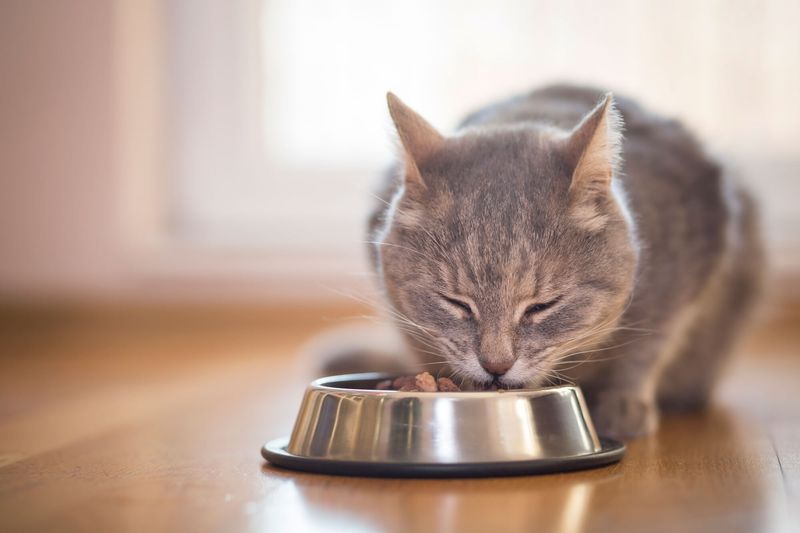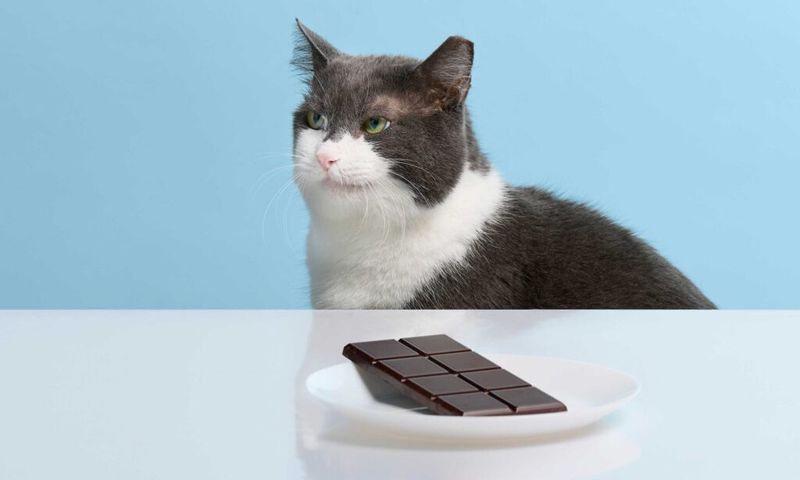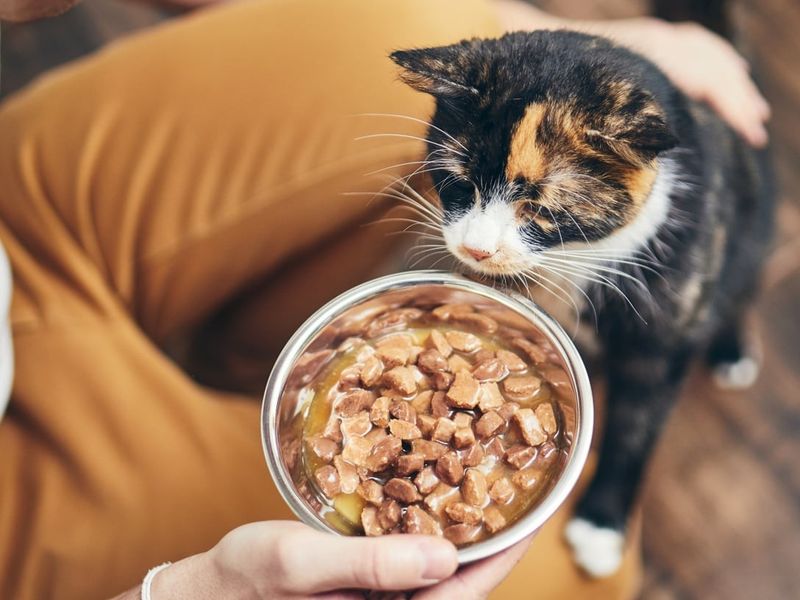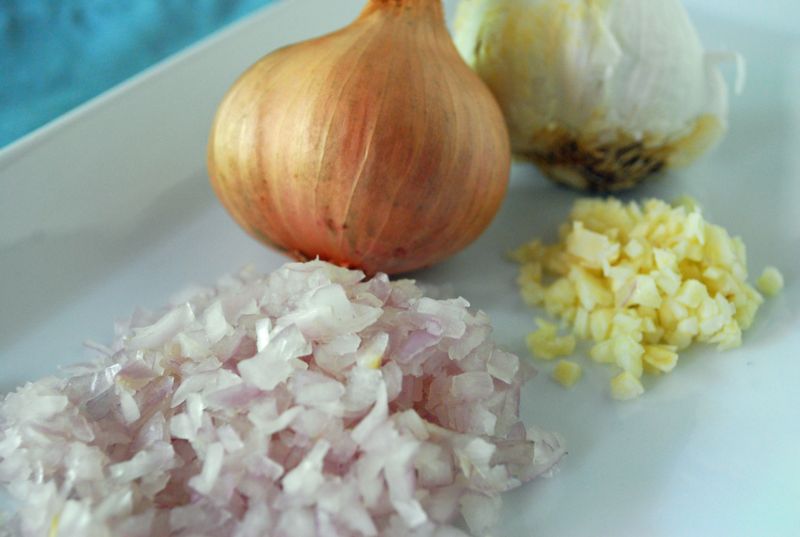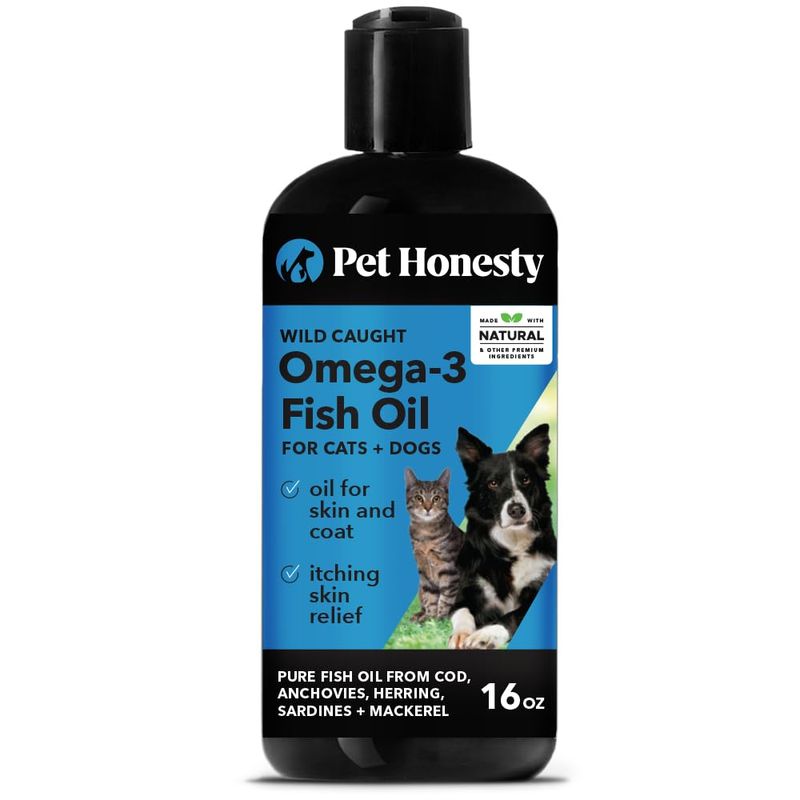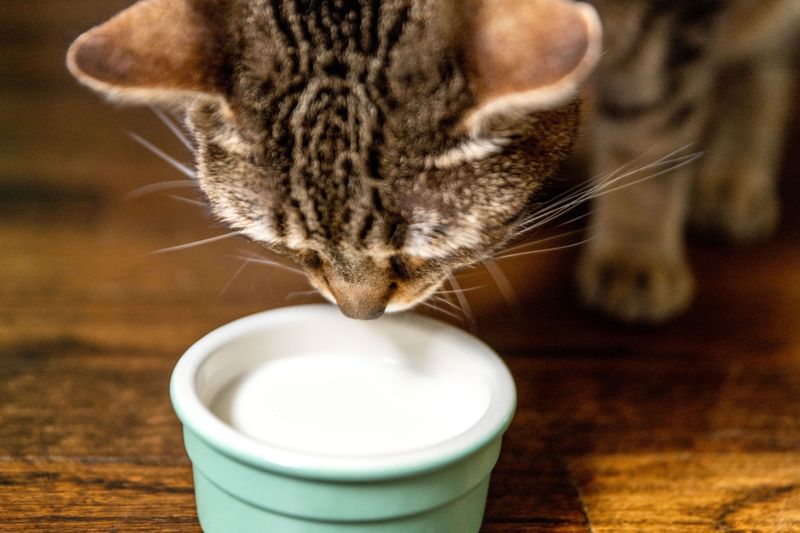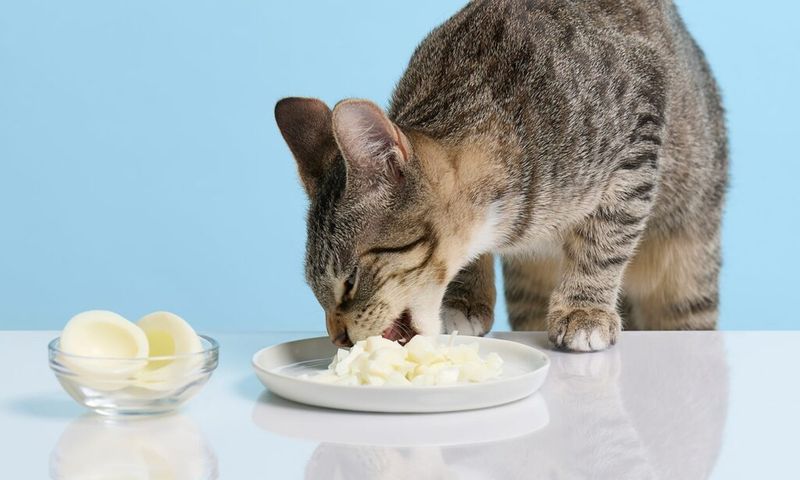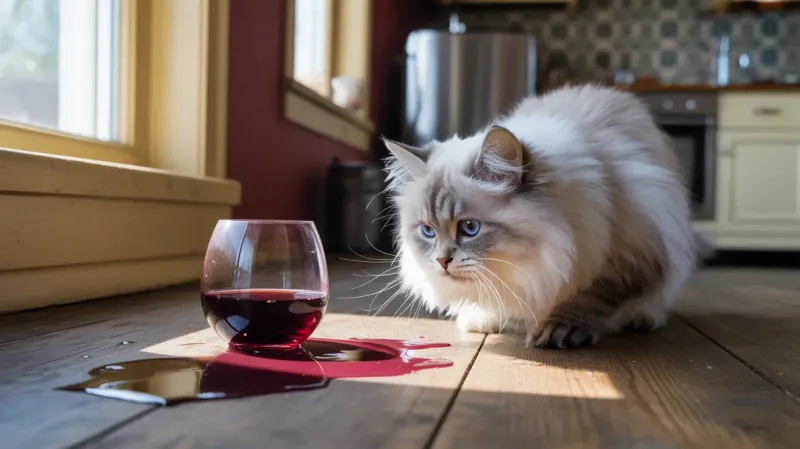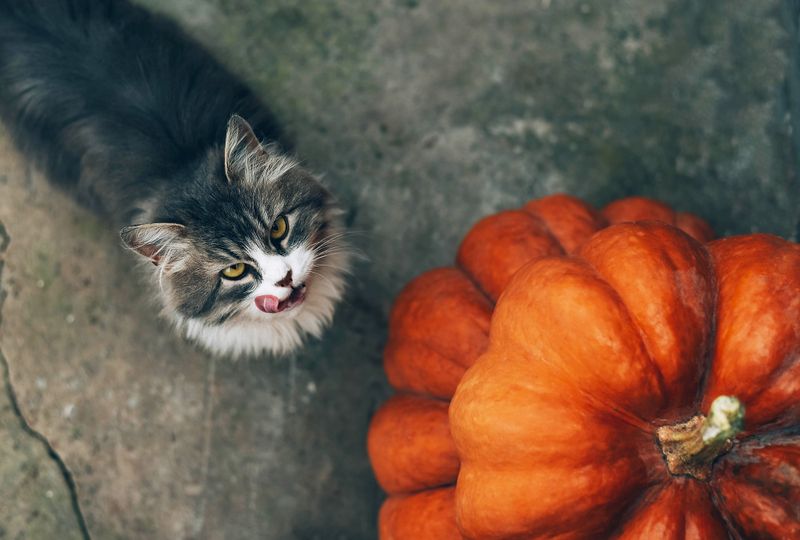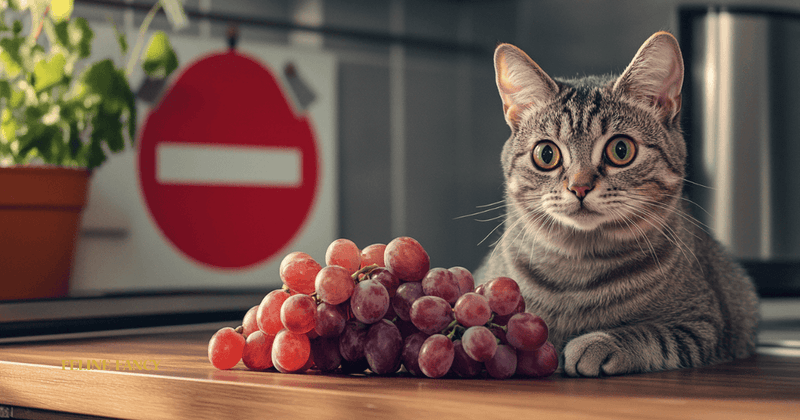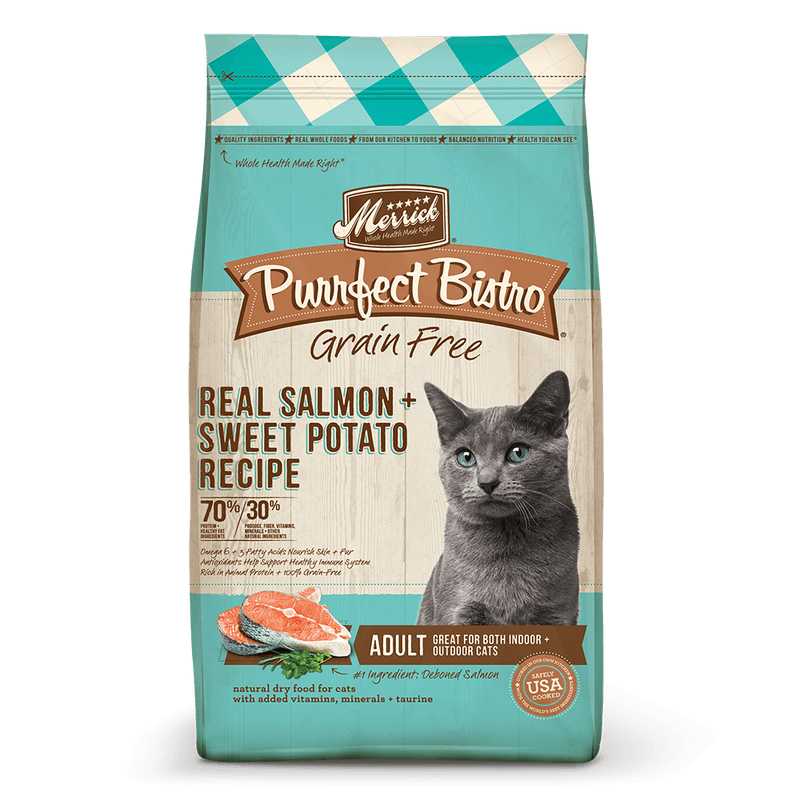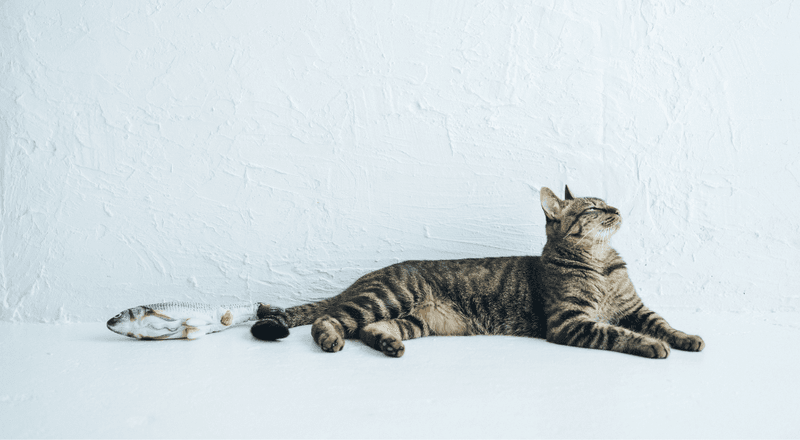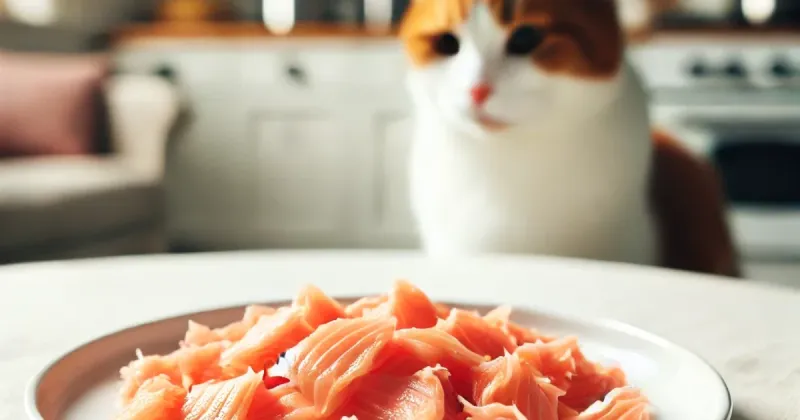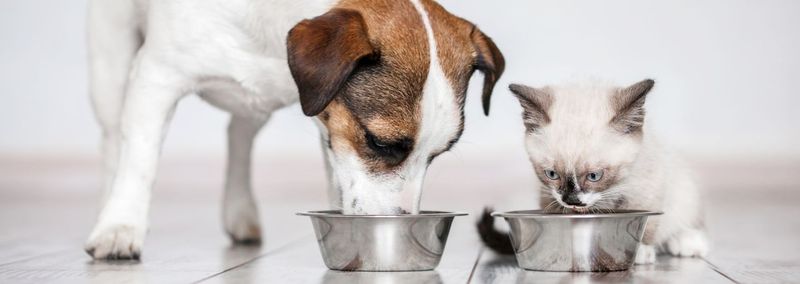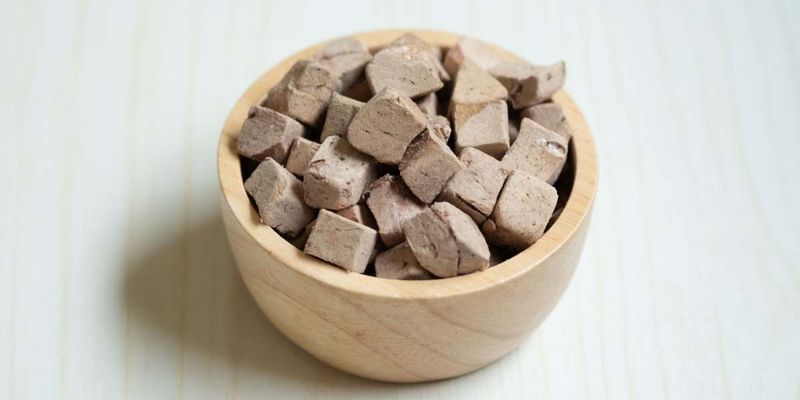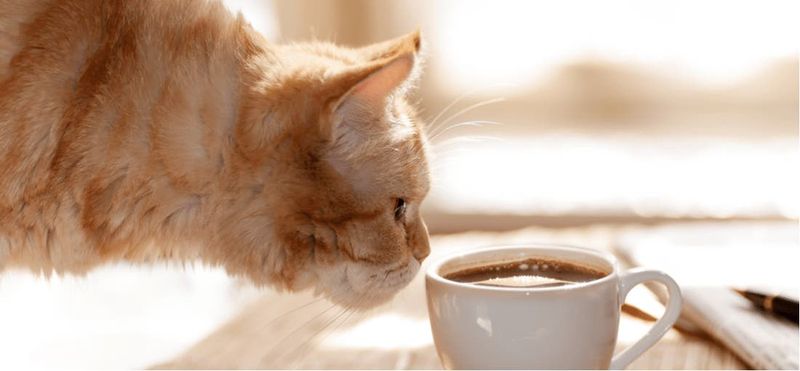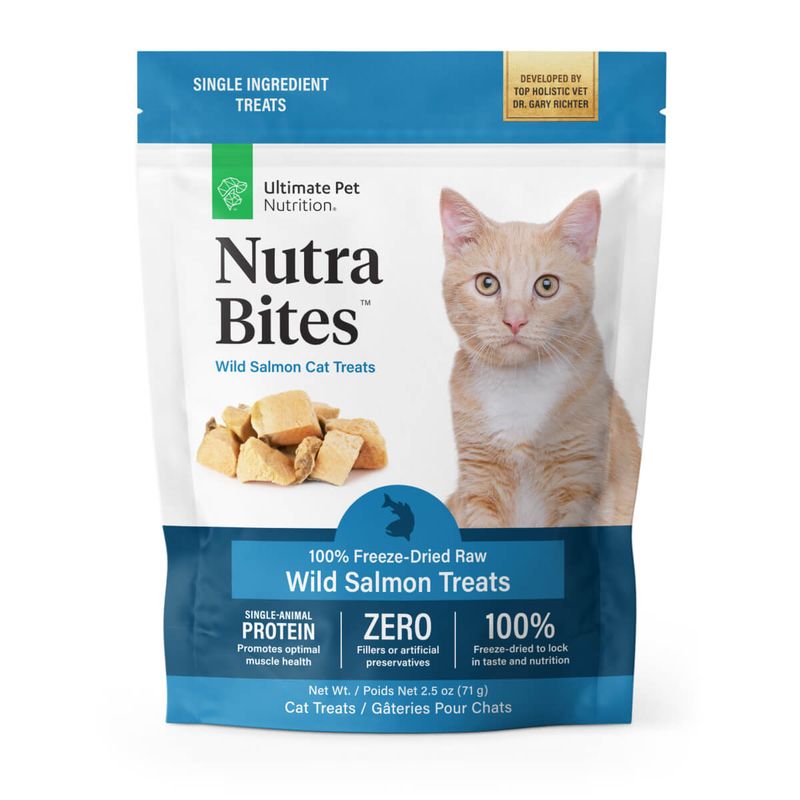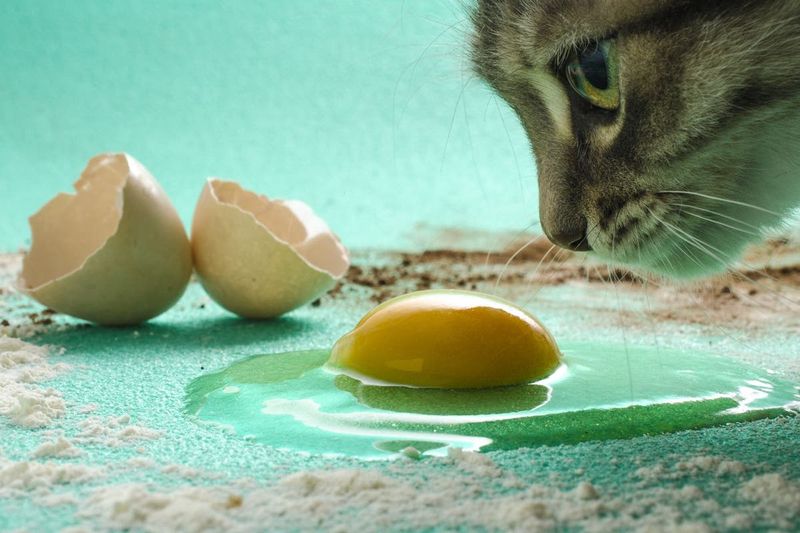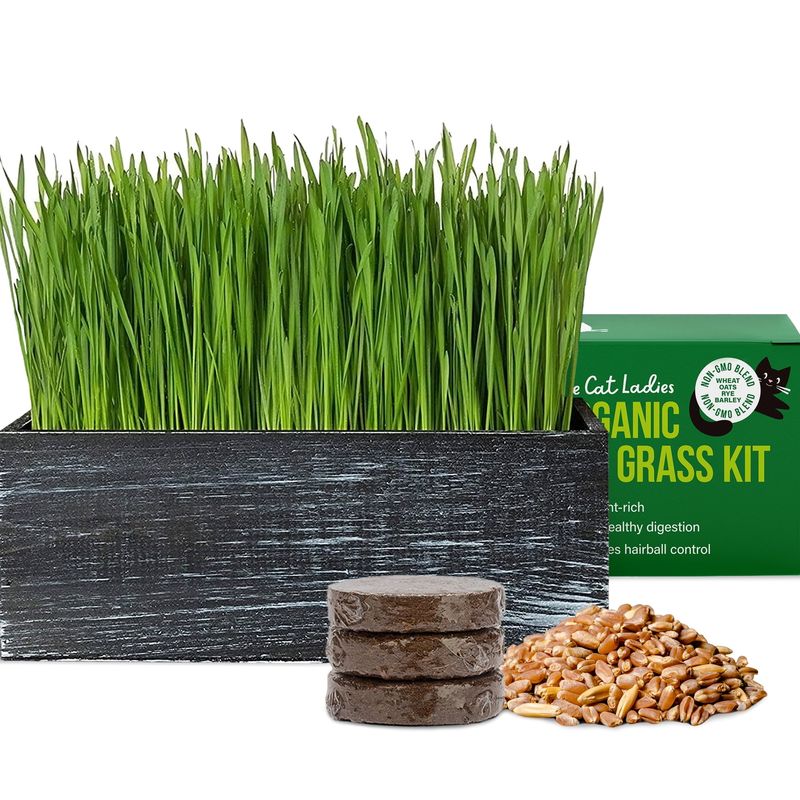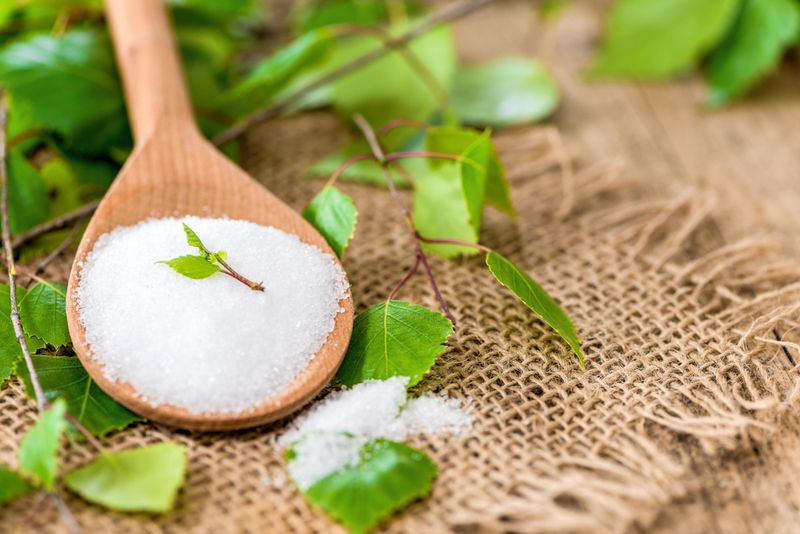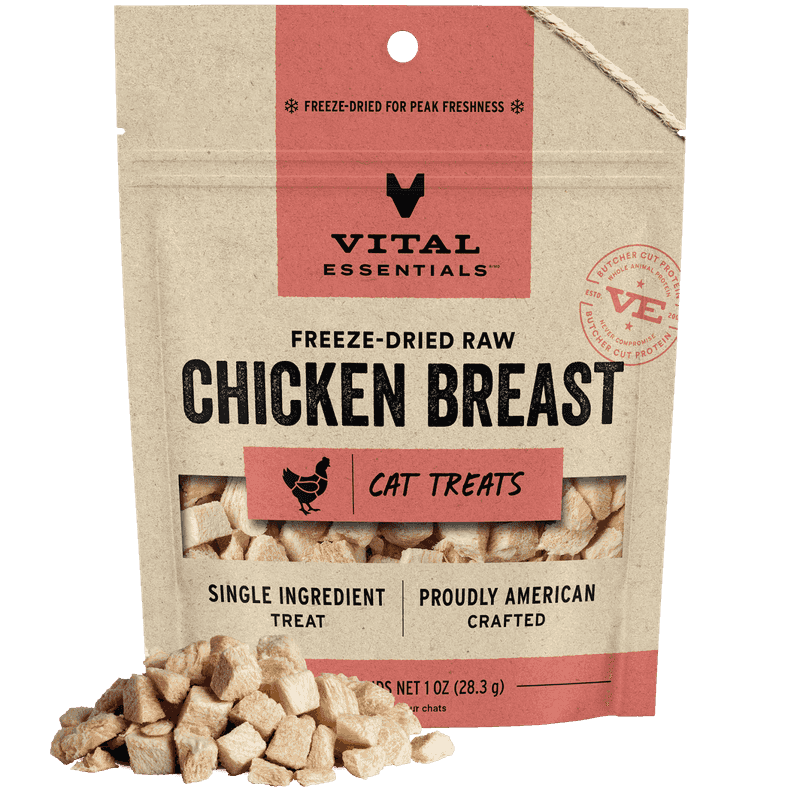📖 Table of Content:
- 1. BEST: High-Quality Wet Cat Food
- 2. WORST: Chocolate
- 3. BEST: Lean Cooked Meats
- 4. WORST: Onions and Garlic
- 5. BEST: Fish Oil Supplements
- 6. WORST: Dairy Products
- 7. BEST: Cooked Eggs
- 8. WORST: Alcohol
- 9. BEST: Pumpkin
- 10. WORST: Grapes and Raisins
- 11. BEST: Commercial Grain-Free Cat Food
- 12. WORST: Raw Fish
- 13. BEST: Boneless Cooked Fish
- 14. WORST: Dog Food
- 15. BEST: Small Amounts of Cooked Liver
- 16. WORST: Caffeine
- 17. BEST: Commercial Cat Treats
- 18. WORST: Raw Eggs
- 19. BEST: Specially Formulated Cat Grass
- 20. WORST: Xylitol
- 21. BEST: Freeze-Dried Meat Treats
Feeding your feline friend the right diet is crucial for their health and happiness. As a cat parent, knowing which foods are beneficial and which could be harmful makes all the difference in your pet’s quality of life. Veterinarians have clear recommendations about what should and shouldn’t go into your kitty’s bowl, and this guide breaks down the top choices and dangerous options to keep your furry companion thriving.
1. BEST: High-Quality Wet Cat Food
Moisture-rich wet food provides essential hydration for cats, who typically don’t drink enough water on their own. This dietary option closely mimics what cats would naturally consume in the wild. Premium wet foods contain higher protein levels and fewer fillers than their cheaper counterparts. The soft texture is particularly beneficial for senior cats or those with dental issues. Look for options with named meat sources as the first ingredient rather than meat by-products or mystery ingredients. Many veterinarians recommend feeding a combination of wet and dry food for optimal nutrition.
2. WORST: Chocolate
Chocolate contains theobromine and caffeine, two stimulants that cats cannot metabolize efficiently. Even small amounts can cause serious health problems including increased heart rate, tremors, and seizures. Dark and baking chocolates pose the greatest risk due to their higher theobromine content. While cats rarely seek out sweets on their own, curious felines might nibble on chocolate left within reach. Symptoms of chocolate poisoning include vomiting, diarrhea, excessive thirst, and in severe cases, cardiac failure. If you suspect your cat has consumed chocolate, contact your veterinarian immediately.
3. BEST: Lean Cooked Meats
Plain cooked chicken, turkey, and lean beef deliver protein-packed nutrition that cats naturally crave. These meats align perfectly with a cat’s carnivorous dietary needs when prepared without seasonings, oils, or additives. Serving occasional small portions of these proteins can supplement commercial cat food and provide variety. Always ensure the meat is thoroughly cooked to eliminate harmful bacteria and cut it into appropriate bite-sized pieces. Avoid offering meat with bones that could splinter and cause choking or internal injuries. Remember that these treats should make up no more than 10% of your cat’s total diet to maintain proper nutritional balance.
4. WORST: Onions and Garlic
Members of the allium family, including onions, garlic, chives, and leeks, contain compounds that damage feline red blood cells. This damage can lead to hemolytic anemia, a potentially fatal condition where red blood cells are destroyed faster than they can be made. Even small amounts of these foods can cause problems, whether raw, cooked, powdered, or dehydrated. Symptoms may not appear immediately but can include lethargy, weakness, reduced appetite, pale gums, and orange-to-dark red urine. Many human foods contain these ingredients, so be cautious with sharing table scraps. Baby food, for instance, often contains onion powder that could harm your feline friend.
5. BEST: Fish Oil Supplements
Omega-3 fatty acids found in fish oil support healthy skin, reduce inflammation, and promote a shiny coat. Veterinarians often recommend these supplements for cats with allergies, arthritis, or kidney disease. Quality matters tremendously with fish oil. Look for supplements specifically formulated for cats that have been tested for contaminants like mercury. The proper dosage depends on your cat’s weight and health condition. Some cats enjoy the taste of fish oil added directly to their food. However, refrigeration is essential as these oils can become rancid quickly. Always consult your vet before starting any supplement regimen for your feline friend.
6. WORST: Dairy Products
Despite popular portrayal in media, most adult cats are actually lactose intolerant. Their bodies produce very little lactase, the enzyme needed to digest milk sugar, after weaning from their mother. Feeding dairy products like milk, cheese, or ice cream often results in digestive upset including diarrhea, vomiting, and abdominal discomfort. The high fat content in many dairy items can also contribute to obesity and pancreatitis in susceptible cats. Some cats may tolerate small amounts of certain dairy products better than others. If you’re determined to offer dairy, specially formulated lactose-free cat milk is a safer alternative than cow’s milk.
7. BEST: Cooked Eggs
Properly cooked eggs provide excellent protein, amino acids, and B vitamins for cats. The biological value of egg protein is among the highest of any food, making it highly digestible and nutritious for feline bodies. Always serve eggs fully cooked without salt, pepper, or other seasonings. Raw eggs contain avidin, a protein that interferes with biotin absorption, and may harbor salmonella bacteria. Scrambled or hard-boiled eggs make an occasional healthy treat when broken into small, manageable pieces. Limit egg treats to once or twice a week and offer only a tablespoon or two at a time to prevent upsetting your cat’s regular diet balance.
8. WORST: Alcohol
Alcohol poses an extreme danger to cats, whose small bodies and unique metabolism cannot process even tiny amounts. What seems like an insignificant quantity to humans can cause severe ethanol poisoning in felines. Symptoms develop rapidly and include disorientation, vomiting, elevated heart rate, and dramatically lowered body temperature. In more serious cases, alcohol can cause respiratory depression, seizures, coma, and death. Beyond obvious alcoholic beverages, be mindful of other sources like certain medications, mouthwashes, perfumes, and fermenting dough. Keep all alcohol securely away from curious cats, and seek immediate veterinary care if accidental consumption occurs.
9. BEST: Pumpkin
Plain canned pumpkin (not pie filling) works wonders for feline digestive issues. The high fiber content helps regulate both constipation and diarrhea by adding bulk to stool or absorbing excess water in the digestive tract. Rich in vitamins A, C, and E, pumpkin also provides beneficial antioxidants and immune support. Many cats enjoy its mild flavor, making it easier to administer than medication for minor digestive upsets. Start with just a teaspoon mixed into regular food and observe how your cat responds. Freeze unused portions in ice cube trays for convenient single servings later. This natural remedy has become a staple recommendation from veterinarians for mild gastrointestinal issues.
10. WORST: Grapes and Raisins
Grapes and raisins contain an unknown toxin that can cause sudden kidney failure in cats. What makes these fruits particularly dangerous is that the toxic reaction doesn’t depend on the amount consumed – even a single grape could potentially be harmful. The exact mechanism isn’t fully understood by veterinary science, and some cats seem more susceptible than others. Initial symptoms include vomiting, lethargy, and reduced appetite, progressing to more serious signs of kidney damage. All grape products pose a risk, including grape juice, wine, and baked goods containing raisins. If your cat consumes any grape product, contact your veterinarian immediately rather than waiting for symptoms to appear.
11. BEST: Commercial Grain-Free Cat Food
Quality grain-free formulations closely mimic a cat’s natural carnivorous diet. These products typically contain higher protein percentages and fewer carbohydrates than conventional cat foods. For cats with genuine grain allergies or sensitivities, these diets can reduce itching, digestive issues, and other allergy symptoms. The best options feature named meat sources as primary ingredients rather than meat meals or by-products. However, recent research suggests possible links between some grain-free diets and heart problems in pets. Consult your veterinarian before switching to grain-free, as not all cats benefit from this dietary approach despite its popularity.
12. WORST: Raw Fish
Uncooked fish contains thiaminase, an enzyme that destroys thiamine (vitamin B1), potentially leading to serious neurological problems in cats. Regular consumption can result in thiamine deficiency with symptoms including seizures, loss of coordination, and even brain damage. Raw fish may also harbor parasites and bacteria like salmonella or listeria that pose health risks to both cats and humans. Some fish, particularly tuna, can contain high levels of mercury when fed regularly. Occasional fully-cooked fish treats are generally safe for most cats. However, raw fish should never become a dietary staple, despite the common image of cats happily eating fish straight from the market.
13. BEST: Boneless Cooked Fish
Properly cooked fish provides omega-3 fatty acids that support joint health, brain function, and reduce inflammation in cats. Salmon, mackerel, and sardines (packed in water, not oil) are particularly beneficial options. Always serve fish thoroughly cooked and deboned to prevent choking hazards. Avoid seasoning with salt, garlic, or other additives that could harm your feline friend. Moderation remains crucial, as too much fish can lead to thiamine deficiency or mercury exposure with certain species. Limit fish treats to once or twice weekly and in small portions. For cats with seafood allergies, obviously, this otherwise healthy option should be avoided.
14. WORST: Dog Food
Canine nutrition formulas lack sufficient taurine, an essential amino acid that cats cannot produce themselves. Unlike dogs, cats require this nutrient from their diet to prevent heart disease and vision problems. Dog food also contains different vitamin and protein ratios designed specifically for canine metabolism. The caloric density and fat content typically differ from cat food, potentially leading to weight issues when fed regularly. While an occasional mouthful of dog food won’t harm your cat, it should never replace proper feline nutrition. Even the highest quality dog food lacks the specific nutrient profile that cats evolutionarily require as obligate carnivores.
15. BEST: Small Amounts of Cooked Liver
Liver contains concentrated amounts of vitamin A, iron, and other nutrients beneficial for cats in moderate amounts. This nutrient-dense organ meat supports vision, immune function, and healthy blood cell production. Cooking is essential to eliminate potential parasites and bacteria. Chicken or beef liver should be boiled or baked without seasonings, then cut into tiny pieces appropriate for your cat’s size. Moderation is absolutely crucial with liver. Too much vitamin A can cause hypervitaminosis A, leading to bone problems and joint pain. Limit liver treats to a small piece once weekly, approximately the size of a cat treat, rather than making it a regular meal component.
16. WORST: Caffeine
Caffeine stimulates the central nervous system in cats much more intensely than in humans due to their smaller size and different metabolism. Products containing caffeine like coffee, tea, energy drinks, and certain medications can cause serious health emergencies. Symptoms of caffeine toxicity include restlessness, rapid breathing, heart palpitations, muscle tremors, and seizures. As little as a few laps of coffee or tea can trigger dangerous reactions in cats. Keep all caffeine-containing products securely away from curious cats. If accidental ingestion occurs, contact your veterinarian immediately as this requires prompt medical attention and potentially life-saving treatment.
17. BEST: Commercial Cat Treats
Veterinarian-approved commercial treats are formulated specifically for feline nutritional needs and safety. Quality options contain recognizable ingredients without artificial colors, flavors, or preservatives that might trigger allergies or sensitivities. Functional treats addressing specific health concerns have become increasingly popular. Options targeting dental health, hairball control, joint support, or urinary tract health can supplement regular care when chosen appropriately. Moderation remains essential regardless of quality. Treats should constitute no more than 10% of your cat’s daily caloric intake to prevent weight gain and nutritional imbalances. Breaking larger treats into pieces extends enjoyment while keeping portions reasonable.
18. WORST: Raw Eggs
Uncooked eggs present two significant risks to cats: potential bacterial contamination and avidin interference. Raw egg whites contain avidin, a protein that binds to biotin (vitamin B7) and prevents its absorption, potentially leading to skin problems and coat issues with regular consumption. Salmonella and E. coli contamination poses serious health threats to both cats and their human families. These bacteria can cause severe gastrointestinal illness with symptoms including vomiting, diarrhea, and fever. While the protein in eggs benefits cats, always serve them thoroughly cooked. Scrambled or hard-boiled eggs without seasonings make safe occasional treats that eliminate these unnecessary risks while preserving nutritional benefits.
19. BEST: Specially Formulated Cat Grass
Cat grass provides a safe outlet for your feline’s natural grazing instincts. Usually grown from wheat, oat, barley, or rye seeds, this non-toxic plant offers fiber and entertainment without the risks posed by household plants or outdoor vegetation. Munching on cat grass helps cats expel hairballs naturally and provides environmental enrichment. Many cats are instinctively drawn to cat grass, suggesting it may fulfill a biological need not met by commercial diets. Growing kits make cultivation simple even for those without green thumbs. Keep fresh grass available in rotation, replacing it when it becomes wilted or yellowed. This healthy alternative protects cats from seeking potentially toxic houseplants.
20. WORST: Xylitol
This artificial sweetener found in sugar-free products causes rapid insulin release in cats, potentially leading to dangerous hypoglycemia (low blood sugar). Even small amounts can trigger vomiting, lethargy, loss of coordination, and seizures within minutes to hours of ingestion. Xylitol appears in surprising products beyond obvious sugar-free gum and candy. Certain peanut butters, baked goods, toothpastes, mouthwashes, vitamins, and medications may contain this toxic ingredient. Always check ingredient labels carefully before sharing any human food with your cat. If xylitol ingestion is suspected, immediate veterinary care is essential as the condition can progress rapidly to liver failure without proper treatment.
21. BEST: Freeze-Dried Meat Treats
Freeze-dried treats preserve meat’s nutritional integrity without artificial preservatives or additives. The freeze-drying process removes moisture while maintaining protein structure, creating lightweight treats with concentrated flavor cats adore. Single-ingredient options like chicken, turkey, or fish align perfectly with cats’ carnivorous dietary needs. The crunchy texture can help remove soft tartar buildup while satisfying natural chewing instincts. Look for products made in countries with strict safety regulations and quality control standards. These treats store well without refrigeration while offering a protein-rich reward for training or bonding. Their intense flavor makes them particularly useful for medication administration or encouraging reluctant eaters.

